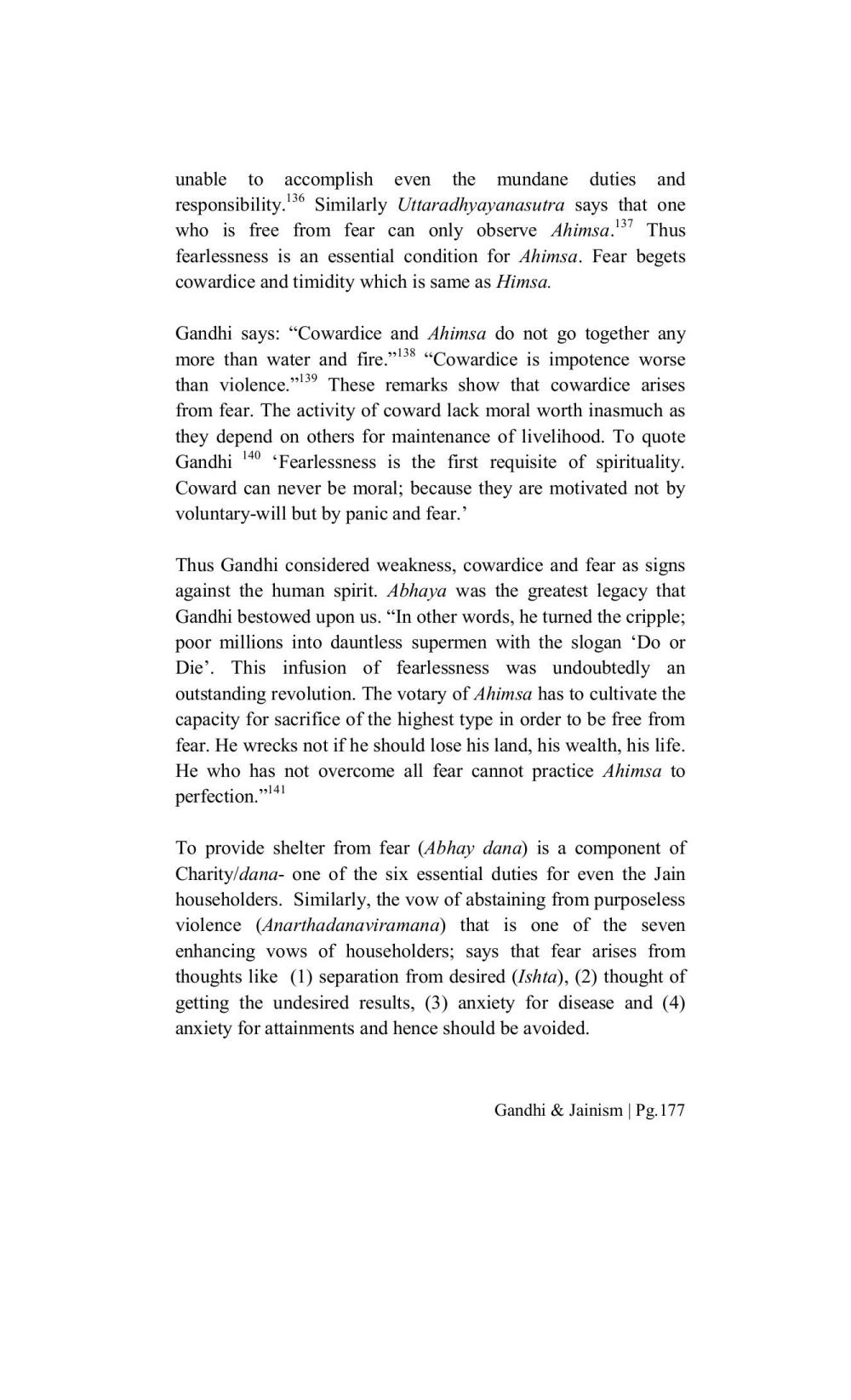________________
unable to accomplish even the mundane duties and responsibility. Similarly Uttaradhyayanasutra says that one who is free from fear can only observe Ahimsa.137 Thus fearlessness is an essential condition for Ahimsa. Fear begets cowardice and timidity which is same as Himsa.
Gandhi says: "Cowardice and Ahimsa do not go together any more than water and fire."138 "Cowardice is impotence worse than violence."139 These remarks show that cowardice arises from fear. The activity of coward lack moral worth inasmuch as they depend on others for maintenance of livelihood. To quote Gandhi 140 'Fearlessness is the first requisite of spirituality. Coward can never be moral; because they are motivated not by voluntary-will but by panic and fear.'
Thus Gandhi considered weakness, cowardice and fear as signs against the human spirit. Abhaya was the greatest legacy that Gandhi bestowed upon us. “In other words, he turned the cripple; poor millions into dauntless supermen with the slogan "Do or Die'. This infusion of fearlessness was undoubtedly an outstanding revolution. The votary of Ahimsa has to cultivate the capacity for sacrifice of the highest type in order to be free from fear. He wrecks not if he should lose his land, his wealth, his life. He who has not overcome all fear cannot practice Ahimsa to perfection."141
To provide shelter from fear (Abhay dana) is a component of Charity/dana- one of the six essential duties for even the Jain householders. Similarly, the vow of abstaining from purposeless violence (Anarthadanaviramana) that is one of the seven enhancing vows of householders; says that fear arises from thoughts like (1) separation from desired (Ishta), (2) thought of getting the undesired results, (3) anxiety for disease and (4) anxiety for attainments and hence should be avoided.
Gandhi & Jainism
Pg. 177




